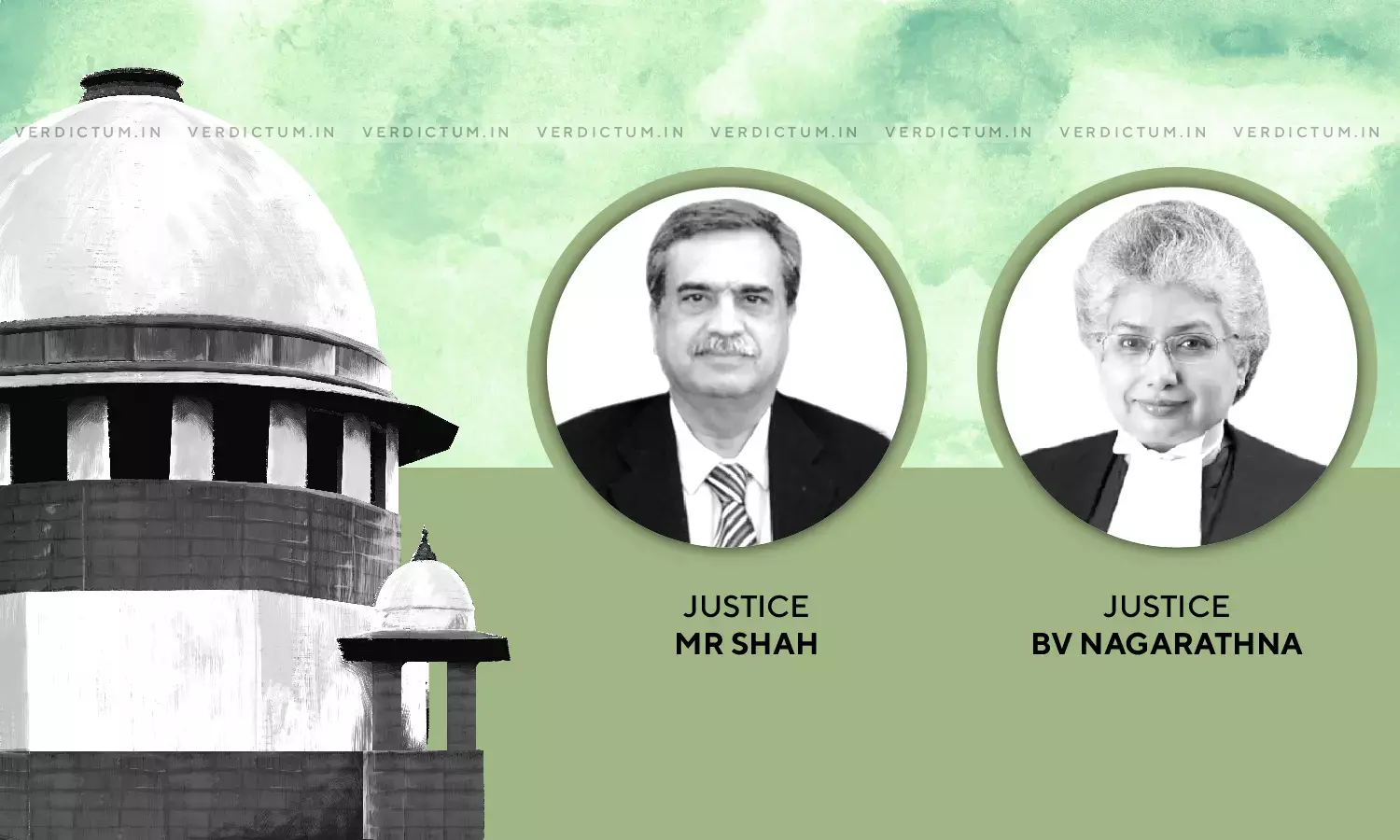Director Of Prosecution Has Failed To Perform His Duties: SC On Gujarat Govt Not Filing Appeal Against Bail Granted In Murder Case

A Bench of the Supreme Court comprising of Justice M.R. Shah and Justice B.V. Nagartahna set aside the bail granted to two accused by the High Court of Gujarat while noting that the State had not filed appeals against the impugned order and remarking that the duty of the Directorate of Prosecution in the administration of justice is crucial and that the State and Directorate of Prosecution had failed to discharge their duties.
The appeal arose from an order of the High Court of Gujarat at Ahmedabad, granting bail to two accused, who faced charges under Sections 302, 342, 354, 323, 143, 147, 148, 149 of the Indian Penal Code 1860, Section 3(1)(r)(s), 3(2)(5) of the Scheduled Castes and the Scheduled Tribes (Prevention of Atrocities) Act, 1989 and Section 135 of the Gujarat Police Act, 1951.
The Appellant is the widow of the victim who was allegedly murdered by the accused persons by beating him after tying him using a pipe and belt. When bail applications of the two accused were rejected by the Sessions Court, the accused persons approached the High Court for grant of bail. The High Court allowed the bail applications, and the accused have been on bail since the last two and a half years.
Senior Advocate Colin Gonsalves submitted that the High Court has materially erred in releasing the accused on bail in a case where the deceased was brutally murdered, despite the accused being identified in TIP by both eyewitnesses.
Advocate Aastha Mehta appearing on behalf of the State agreed that the State should have preferred an appeal on a query by the Court.
Senior Advocate Ahmadi, appearing for the accused contended that the bail may not be cancelled after two and a half years have passed since they were enlarged on bail.
The Apex Court cancelled the bail granted to the accused persons on the ground that offences alleged were serious in nature and that the High Court has granted bail despite the statements of eyewitnesses.
It held-
"The High Court has not at all considered the gravity of the offences alleged and the evidence collected during the investigation, which are forming part of the chargesheet. ...The judgments and orders passed by the High Court releasing the accused on bail are unsustainable both, on facts as well as on law."
The Court also held that cancellation of bail and quashing and setting aside the wrong order passed by the High Court releasing the accused on bail stand on different footings and that once it is found that the order passed by the High Court releasing the accused on bail is unsustainable, necessary consequences shall have to follow and the bail has to be cancelled.
The Court directed the two accused to surrender before the concerned jail authority within one week from the date of the judgment, failing which, the Court shall issue a non-bailable warrant against them.
Noting the lag on part of the State, the Court stated-
"Before parting, we may observe that by not filing the appeals by the State against the impugned judgments and orders releasing the accused on bail in such a serious matter, the State has failed to protect the rights of the victim... In criminal matters the party who is treated as the aggrieved party is the State which is the custodian of the social interest of the community at large and so it is for the State to take all the steps necessary for bringing the person who has acted against the social interest of the community to book."
"It is the duty of the Director of Prosecution to take prompt decision. Given that crimes are treated as a wrong against the society as a whole, the role of the Director of Prosecution.... It is the duty of the Director of Prosecution and the State to ensure that the guilty are booked and punished."
Click here to read/ download judgment.

